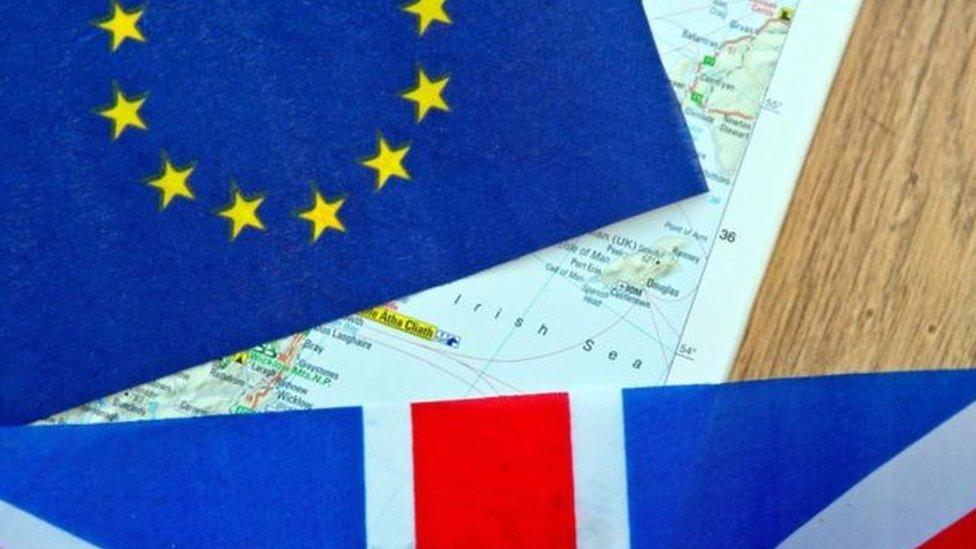Brexit: Border controls provide food for thought
- Published
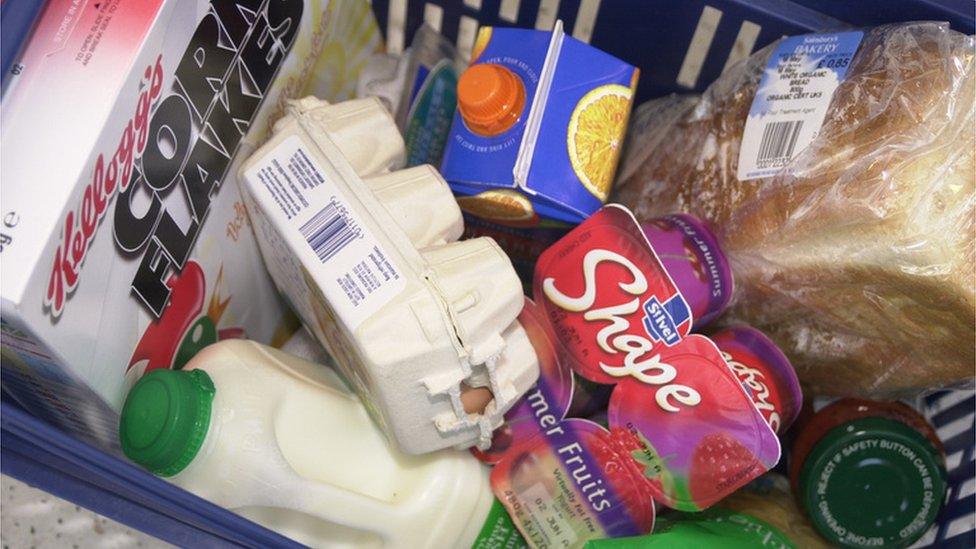
The EU has strict rules on what food products can be sold in its single market and how they enter it
In a week of division and rancour at Stormont it was striking that we saw a rare joint letter from the first and deputy first ministers.
Arlene Foster and Michelle O'Neill were spurred to write to the European Commission amid growing concern about how the new Irish Sea border will work.
It will involve new checks and controls on goods moving from GB-NI.
The greatest worry is about the ability of supermarkets to supply their Northern Ireland stores in January.
"It is hard to imagine a more fundamental aspect of everyday life than the purchase of daily food supplies," the ministers wrote.
They implored the EU to show goodwill and pragmatism when it comes to implementing the new controls on food products as required by the Brexit deal.
The issue of food, Brexit and Northern Ireland's borders has been swirling around for years.
I first wrote about it in 2017, in the context of the Irish land border.
The fundamental issue is that the EU has strict rules on what food products can be sold in its single market and how they enter it.
Products of animal origin (meat, milk, fish and eggs) must enter through a border control post where paperwork is checked and a proportion of goods is physically inspected.
All these products must also have an export health certificate, an expensive piece of administration.
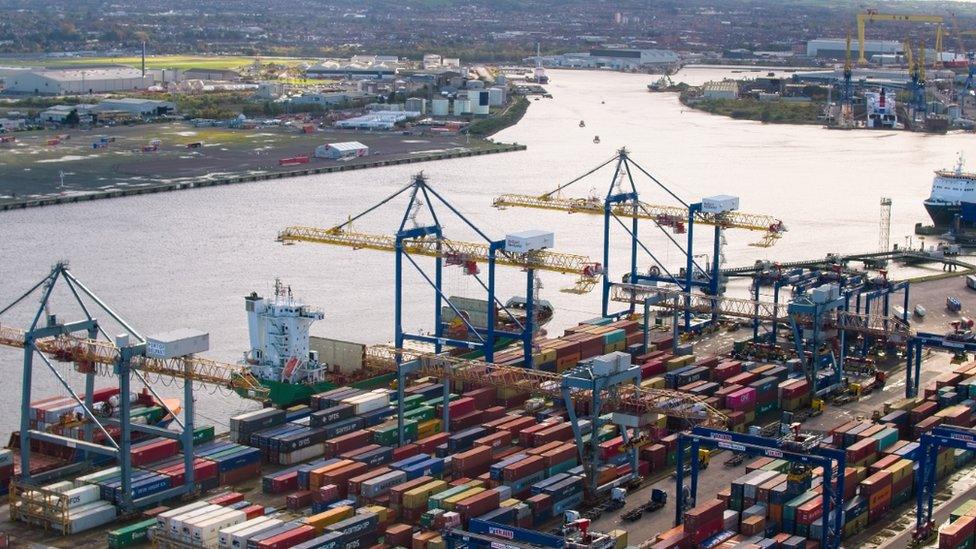
The Brexit deal means customs declarations will be needed for GB-NI trade
From 1 January, Northern Ireland will remain inside the EU single market for goods and the rest of the UK will be outside.
That means all these controls should apply on every supermarket lorry crossing the Irish Sea from GB to NI.
But it is now clear that neither the supermarkets nor government agencies are ready for this.
The border controls posts required at Northern Ireland's ports have not yet been built.
A senior Stormont official has told MLAs that the posts will not be ready until the summer, but some in the construction industry think even that timetable is ambitious.
On the supermarket side there were instructive comments this week from Joe McDonald, Asda's corporate affairs manager in Northern Ireland.
Allow X content?
This article contains content provided by X. We ask for your permission before anything is loaded, as they may be using cookies and other technologies. You may want to read X’s cookie policy, external and privacy policy, external before accepting. To view this content choose ‘accept and continue’.
He explained that large retailers could have up to 50,000 different product lines.
Any of them could be destined for NI on a given day, with nothing finalised until minutes before a load is signed off in a GB depot.
"Applying Export Health Certificates and Customs Declarations to these thousands of items would be a daily bureaucratic nightmare" he tweeted.
"Labelling, VAT rules, EU prohibited list, heat treated pallets and tariff bureaucracy (if no free trade agreement) all add to the huge cumulative burden."
'Grace period'
Asda and the other supermarkets are pressing for a "trusted trader" scheme which would keep bureaucracy to a minimum in exchange for opening their books to the EU.
"The data and traceability are there," Mr McDonald said.
"A trusted trader solution would take the bureaucracy off the table, and the EU could audit retail at any time and be assured."
However, the EU does not yet seem convinced of this and it's not clear how much of it could be achieved within EU law.
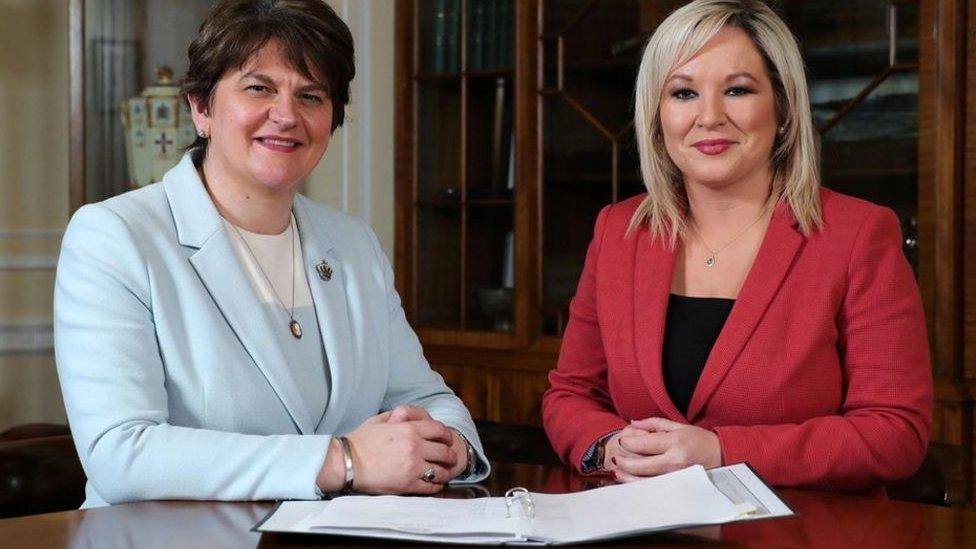
First Minister Arlene Foster and Deputy First Minister Michelle O'Neill have written to the European Commission (photo taken prior to social-distancing measures)
So how will the supermarket lorries continue to flow in January?
RTÉs well-informed Brussels correspondent, Tony Connelly, reports that the UK has asked for a "grace period" with full compliance to be phased in over time.
What that grace period and phasing-in might look like was outlined by Northern Ireland's chief vet, Robert Huey, in evidence to a Stormont Committee earlier this month.
It is Mr Huey's staff who will be responsible for operating the border control posts and carrying out the checks on food products.
He disclosed that along with the UK's chief vet, he had been to Brussels to meet the senior veterinary team at the European Commission.
"They worked hard to find flexibilities and clarification within the existing legislation in order to help us with a plan that was deliverable," he said.
These flexibilities include things like having paperwork checks done in GB ports rather than NI.
"It may mean that full compliance is not achievable on day one but it will set the path of phased introduction towards full compliance," Mr Huey said.
"That's important because that's what the Commission will expect."
So it appears that at the official level there is informal agreement that phasing in of controls is legally and practically possible.
But what's less clear is how this sits politically.
The UK Internal Market Bill, through which the UK government would unilaterally override parts of the Brexit withdrawal treaty, has corroded trust.
Will the EU now trust the UK to phase in these border controls?
- Published6 November 2020

- Published6 November 2020
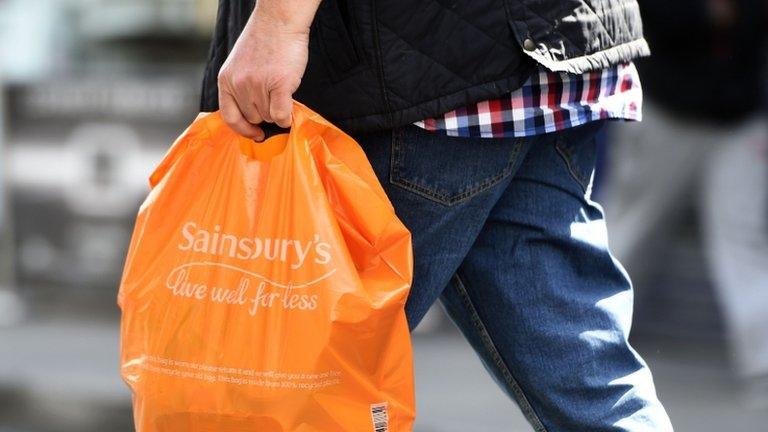
- Published5 November 2020
